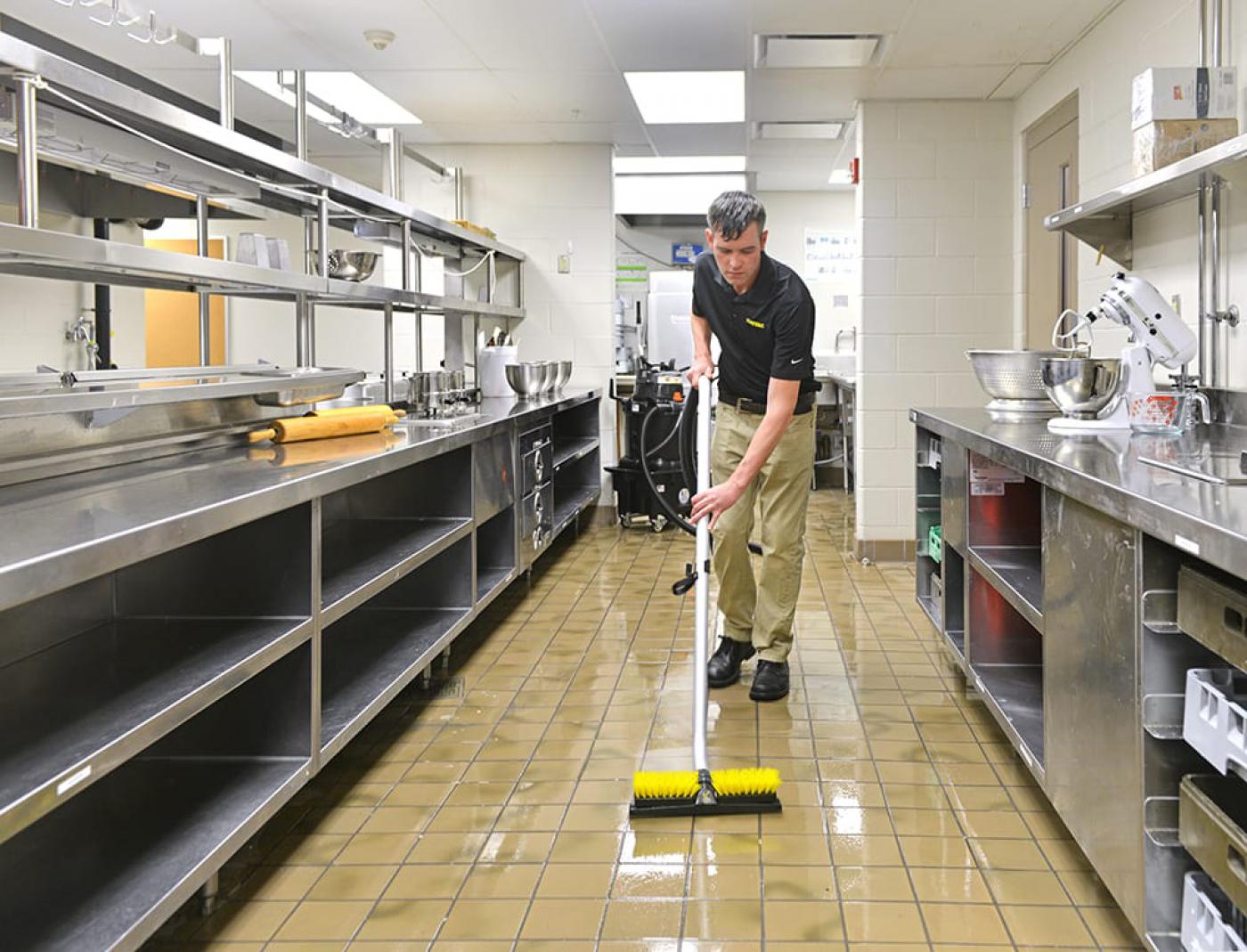Commercial kitchens design and planning require a major focus in the kitchen planning process, they are required by hotels, restaurants, bakeries, ghost kitchens, any commercial food set-up. It is where all the major behind the scene action takes place. Chefs are busy with their teams preparing food, which involves a lot of human contact with the food and also mixing of elements such as raw vegetables with defrosted meat. If one is not being mindful of the commercial kitchen set-up, it can become a hub of infections, that could lead to foodborne illnesses. Thus, hygiene and sanitation standards must be established and maintained in a commercial kitchen set up to keep the area clean and infection-free because just one case of a foodborne illness can tarnish the reputation of a commercial food setup.
During the kitchen planning process, if consultants are hired by commercial food establishments, these professionals while designing a commercial kitchen should help their clients chalk out a plan on how to maintain sanitation measures in a commercial kitchen.
Here are some steps that can help food establishments maintain sanitary standards in a commercial kitchen:
1) Maintain personal hygiene for staff
Food that is prepared in a commercial kitchen involves a lot of human touches. If hands are not sanitized or washed frequently, a lot of infection-causing pathogens can get transferred from the hands into the foods. Diseases like E.Coli, Salmonella, and several other forms of pathogens are caused when hands aren’t washed.

When should one wash their hands:
– After handling raw vegetables, and raw meat.
– After handling eggs
– After a trip to the washroom
Ideally, hands should be washed thoroughly for about 20 seconds with soap and water and dried clean using a dryer or a paper towel.
It is also expected for people to avoid wearing make-up (especially nail paint) and jewelry while working in a commercial kitchen.
These are some rudimentary sanitizing steps one can take in a commercial kitchen.
2) Correct way to store food
Different foods in a commercial kitchen require different storage mechanisms. Some thumb rules can be followed to store food in a commercial kitchen:
– Follow FIFO, first in first out.
– Foods should not be present in cold storage for more than 7 days.
– All foods should be kept in designated boxes and designated areas.
– Ensure the proper stock rotation of the foods and make sure a track record is maintained for the same.

3) Plan a cleaning and sanitizing routine
A commercial kitchen needs some sanitizing that needs to be done daily. In most cases, a lot of cleaning also needs to be done on an hourly basis. Floors need to be mopped regularly using a strong bleach or floor cleaning agent. Again, using a strong detergent that can eliminate infection-causing agents is a plus when it comes to counters. Also, knives, chopping boards, elements present in the food preparation area need instant cleaning once the food is chopped and ready to be cooked. To ensure this is carried out diligently, all the kitchen staff responsible for food preparation need to be mindful about cleaning their workstations. Specific staff members can be assigned to clean the floors and other areas regularly.
4) Avoid cross-contamination of food
The biggest food hygiene and sanitary rule one can enforce in a commercial kitchen is avoiding cross-contamination of the food.
Here are some steps where cross-contamination can be avoided:
– Use separate utensils and food preparation equipment for vegetables, animal products, and eggs. And make sure this rule is enforced. This is a major step to avoid cross-contamination.
– Introduce the concept of color-coded chopping boards for different raw materials in the kitchen.
– Wash, disinfect and sanitize every kitchen equipment after every use.
5) Maintaining a hygiene standard even when it comes to waste disposal
Waste management is also an important step to consider when it comes to maintaining sanitation in a commercial kitchen. A set of bins need to present in the kitchen and a set of bins need to be present outside the kitchen premises too. All the food rubbish if not sorted and disposed of in a clean, hygienic manner, can lead to a breeding ground for the infestation in terms of attracting rats and insects.
6) Last but not least, make sure your kitchen follows health safety and sanitation standards
It’s a wise decision to have a health inspector check the commercial kitchen premises to make sure health safety and sanitation standards are being followed and maintained. Also, kitchen planning consultants can assist their clients in obtaining the correct compliances and licenses that are in sync with the state health codes and laws.
Designing a kitchen can be a tedious process, that requires holistic planning. Hiring a kitchen planning consultant from a well-established food consulting group, such as HPG Consulting, can be quite beneficial for a food establishment looking at opening a commercial food space with a commercial kitchen.
Get in touch with a planning consultant at HPG today.